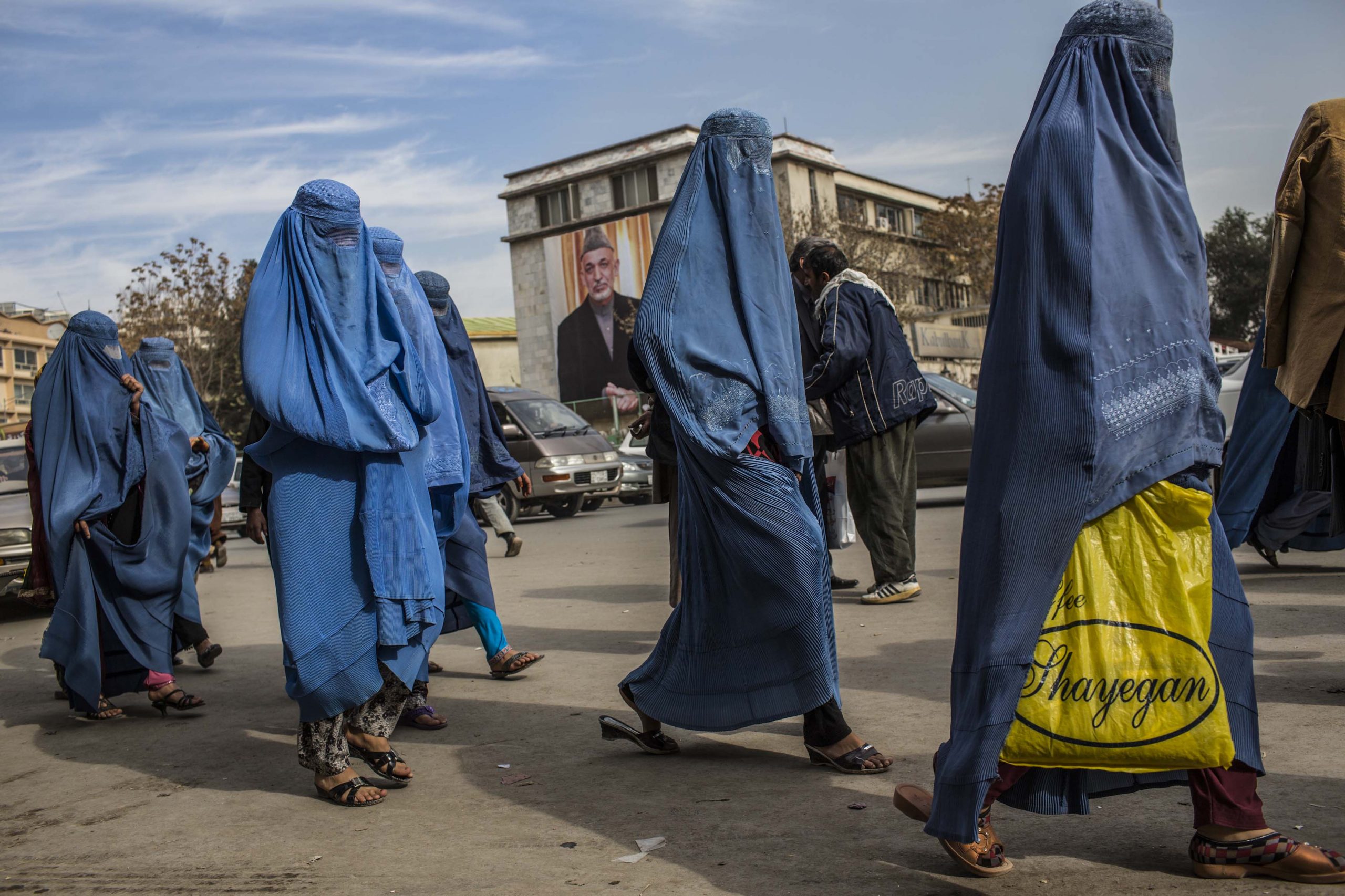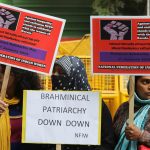No path to peace without women in Afghan talks
Reports show that involving women in peace negotiations drastically increases the chance of maintaining that peace. It is also vital for women to fight for their rights in such talks.
Author:
10 December 2019

On the morning of 27 July 1880, a large force of Afghan fighters led by the son of deposed Emir of Afghanistan Ayyub Khan marched towards a British garrison in Kandahar in southern Afghanistan.
The 25 000-strong group of Afghan volunteers and ghazis (holy warriors) had moved to resist the British annexation of this unruly frontier of the British Raj and engaged in a fierce battle at a place called Maiwand. The morale and discipline of the Afghans dwindled early in the battle, as Khan’s forces began taking heavy casualties against a smaller but better armed and well-trained British corps.
Fearing the campaign was lost, the Afghans began retreating from the site of combat. When the tide seemed to be turning in favour of the British, a young Afghan woman named Malalai, whose father and fiancé were participating in the fighting that day and who had accompanied the contingent to treat wounded soldiers, lifted her veil, rushed towards the raging melee and shouted:
“Young love! If you do not fall in the battle of Maiwand,
By God, someone is saving you as a symbol of shame!”
Hearing the young woman’s acclamation, the Afghans began to rally and rejoin the fighting. At one moment, after seeing her fiancé go down in a volley of British fire, Malalai grabbed a fallen flag (some versions say she made a flag out of her veil) and shouted:
“With a drop of my sweetheart’s blood,
Shed in defence of the Motherland,
Will I put a beauty spot on my forehead,
Such as would put to shame the rose in the garden.”
Malalai was killed that day, but her rallying cry changed the course of the battle, handing the Anglo-Indian army one of their biggest defeats in the Second Afghan War (1878-1880). Malalai epitomises bravery and courage. She showed that during the battle of Maiwand, it was not only the Afghan men but also the women who took part in protecting their homeland.
Related article:
Now revered as the Afghan Jeanne D’Arc and the Afghan Molly Pitcher, many schools, hospitals and other institutions are named after her in Afghanistan and Pakistan. The Pakistani women’s rights activist and Nobel Prize winner Malala Yousafzai and Afghan activist and politician Malalai Joya are named after Malalai.
British sources, unsurprisingly, do not mention Malalai. Her actions may not have been noticed by any of the British, or they may not have seemed as consequential as they were to the Afghans. Afghan women, like Malalai of Maiwand, are rarely mentioned in the narratives of resistance in Afghanistan or elsewhere, and even now their historic efforts in peace processes and nation-building continue to be significantly marginalised or immensely undermined.
Systematic exclusion
Women in Afghanistan have remained at the forefront of resistance against foreign occupying powers and authoritarian regimes of the country, despite its strong patriarchal sociopolitical order. And although women continue to be affected severely by the ensuing civil war, there seems to be a systematic effort to further undermine their role in the Afghan peace efforts, at local and national levels. It remains largely limited to symbolic overtures.
Afghan women have made remarkable strides in different walks of life. More than three million girls are now enrolled in schools and colleges. They serve in the government, participate in local and national politics, operate businesses and function in top judicial roles, lead non-governmental organisations and mediate disputes, and are running for office at all levels of society.
However, with Afghanistan’s peace talks set to resume again, it seems inevitable that the voices and representation of women at the negotiation table will be largely excluded, as has been the case before. Women and an agenda on women’s rights have been absent from the talks between the Taliban, the United States administration and the Afghan regime in Kabul.
According to one report, in about 23 rounds of talks between 2005 and 2014, women were present at the table on only two occasions. This was at the 2010 talks in the Maldives (9% representation) and the 2011-2012 talks in France (10%).
Afghan women have long feared that negotiators for a peace agreement with the Taliban would trade away women’s rights for the chance to end an almost two-decade long war. Despite representing half of the country’s population and having a major stake in one of the most important decisions in the nation’s history, their role has been principally left neglected.
A survey of the Afghan People – based on face-to-face interviews conducted in August 2019 with a nationally representative sample of 17 812 citizens across all 34 Afghan provinces – highlights that underrepresented Afghan women remain concerned about potential outcomes and the implications of a possible US withdrawal from Afghanistan.
Related article:
Both before and after the invasion of Afghanistan by the US forces, and during the Taliban rule between 1996 and 2001, Afghan women were denied basic freedoms such as going to school, speaking publicly and leaving the house without a male chaperone, among others.
That the situation hasn’t changed much in most parts of the country even now is writ large in areas where the Taliban dominate. Owing to deep-rooted patriarchy across different ethnic belts of Afghanistan, women’s participation in local and national politics remain significantly low. On the WPS index, which provides various indicators of women’s rights, wellbeing and empowerment, Afghanistan ranks close to the bottom, in 166th place out of 167 countries.
In 2000, the United Nations Security Council (UNSC) implemented a new resolution called UNSC Resolution-1325, which recognised the role of women in peace and security. But according to a 2016 UN Women survey, the resolution seems to have had little impact on the role of women in the peace process, where less than half of the peace agreements signed made any references towards women.
Feminist scholars have highlighted that women are rarely viewed as “agents of change” and are often seen as “victims of violence”. A study by the Council on Foreign Relations showed that women are rarely included in peace negotiations. From 1990 to 2017, women represented 2% of the mediators, 5% of the witnesses and signatories, and 8% of the negotiators in such talks. Of the 1 187 peace agreements generated during that time, 19% mention and make reference to women, and 5% make reference to gender-based violence.
Optimism despite hurdles
Despite the marginalisation of women from Afghanistan’s formal peace negotiations, Afghan women have made immense contributions to addressing violence and securing peace at a grassroots level throughout the country. Female non-governmental leaders have sought to influence the peace process with the Afghan government and the Taliban, and have participated in government-appointed bodies – such as the Afghan High Peace Council (women make up 26% of its members) and provincial peace councils (women comprise 20% of members) – to lead local peace-building efforts, raise public support for the process, and inform negotiating positions and security operations.
Afghan women have brokered deals among warring insurgent groups at local levels, enabled the betterment of critical institutions such as education and healthcare through public awareness and participation, mitigated sectarian and ethnic conflicts, and worked in humanitarian relief efforts.
Female members of the High Peace Council, for example, led a nationwide campaign in 2014 across 34 provinces and collected 25 000 signatures from women and girls in support of the peace process, which they delivered to then president Hamid Karzai, Taliban leaders and the UN. Women are working in schools and community organisations to counter extremist narratives. And in 2004, Afghan women successfully pushed for a written commitment to equal rights for all Afghan citizens.
“Women are a target group for all these perpetrators of violence, not least because they are considered to be agents of change and therefore a threat to the existence of the war and insurgency altogether. As the country is moving towards reforms and improving institutional capacities, moreover, the role and contributions of women should not be ignored,” says Wazhma Frogh, the co-founder of Research Institute for Women, Peace and Security.
According to peace activist Malalai Habibi, Afghan women must be included in any peace process between the Taliban, the Afghan government and the international community, and not just in formal discussion but as part of its design and implementation. “It is not only the right of the Afghan women to have a place at any peace table, but their duty and responsibility. They are half of the country’s population, and in fact are the half that has suffered more through these decades of war and conflict.”
Related article:
There is a growing body of evidence that shows the positive correlation between women’s broader participation in peace negotiations and durable peace. Many cases of exclusive peace processes also provide examples of fragile peace at the expense of women. There is further evidence that women participants in peace negotiations are usually focused more on reconciliation, economic development, education and transitional justice – all critical elements of a sustained peace.
According to a survey by the New York-based International Peace Institute, of the 182 signed peace agreements between 1989 and 2011, when women are included in peace processes there is a 35% increase in the probability that the agreement will last 15 years or more. The presence of women in Afghan peace-building is thus not only pivotal for inclusivity but also crucial for the durability of any negotiated peace.
Despite decades of efforts to improve the lives of Afghan girls and women, an estimated two-thirds of Afghan girls do not attend school and 87% of women remain illiterate, while 70% to 80% face forced marriage, many before the age of 16. It becomes highly imperative that women take centre stage in the Afghan peace talks so women and girls can secure their future and wellbeing, and ensure that any progress made with regard to gender rights is not reversed or jeopardised.
The story of Malalai of Maiwand is a reminder that if women can change the tide of a war, they can certainly alter the terms of peace for a better future.



